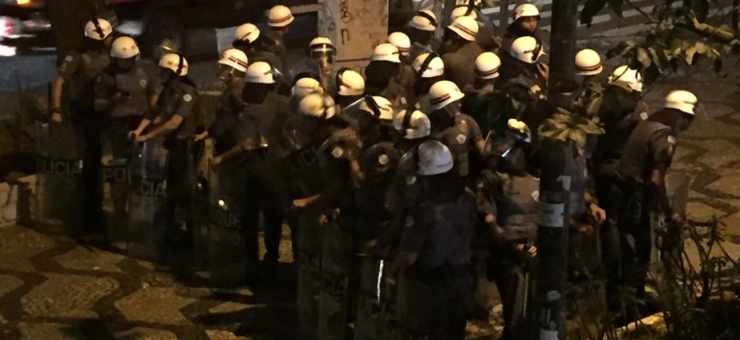News
Brazil: deposing of President Dilma Rousseff will unleash wave of corporate greed

UNI warns situation in Brazil is further evidence of a neoliberal front sweeping Latin America.
The international trade union movement warns that a wave of corporate greed will be unleashed in Brazil following the impeachment of President Dilma Rousseff by a corruption-riddled Congress.
The all-male, all-white cabinet, headed by little-known former Vice-president Michel Temer, had already been drawing up plans for massive budget cuts immediately after taking the reins of power when Dilma was suspended pending the result of the Senate impeachment hearings. Fifteen of the initial 24 cabinet ministers, including Temer himself, face corruption allegations or criminal charges. Whilst in office, Dilma refused to hobble ongoing corruption investigations, including into members of her own political party.
UNI America’s Regional Secretary, Adriana Rosenzvaig said, “Today, our concern goes well beyond the situation that Brazil is experiencing. We are worried about this new neoliberal front, which is clearly closing in on our region and is adversely affecting the poorest people, increasing unemployment, inequality, income distribution and constitutional liberties that guarantee the rights to demonstrate, strike and bargain collectively.”
UNI Global Union General Secretary Philip Jennings said, “The heavy repression suffered by those who oppose Dilma’s dismissal and the arguments used by the governments of Brazil and Argentina to criminalise social protest are unacceptable and immoral. This level of repression is evidence that the purveyors of this new era of neo-liberalism are prepared to resort to old measures to crush the legitimate right of working people to protest. Dilma’s impeachment marks the end of an era of inclusive growth in Brazil."
UNI Head of Commerce, Alke Boessiger who is in São Paulo for a regional meeting of the UNI Carrefour Alliance had witnessed at first hand the protests against Dilma’s impeachment and the heavy handed police reaction. Via social media Boessiger reports, “Protests still continue in São Paulo over the impeachment of President Dilma. Almost all of the protesters are young people. They are met by an army of heavily armed police, water cannons, tear gas, rubber bullets and police helicopters.”
ITUC General Secretary, Sharan Burrow said, "Brazil's richest family used their dominant Globo media empire to help destabilise the government, and now other corporations from home and abroad are looking to cash in on an expected fire-sale of state assets, weakened labour protections and a government that is already putting the interests of global business ahead of its own citizens' jobs and livelihoods.”
The first actions of the Temer government during Dilma's suspension included eliminating the ministries for women, racial equality and human rights, and reversing a 2014 law which guaranteed domestic workers access to pensions, wage guarantees and unfair dismissal compensation. New cuts to key government services and social expenditure will hit the poorest hardest, and Temer has flagged major changes to labour laws and the pension system along with a constitutional amendment which would lock the country into an austerity path for the next twenty years.
The agenda of the Temer government is based on a programme of austerity and regressive change, which will adversely affect basic rights. The big Brazilian trade union centres CUT, FS, UGT /CNPL, CSB, CTB and NCST have already united for the defence of our social achievements and the workers’ protections provided by the law.
UNI reiterates its position of defending democracy and the right of people to shape their future through a direct vote. We also reiterate our commitment to the workers to continue fighting together for collective bargaining and the protection of the workers’ rights won together through great battles during the young histories of the region’s democracies.

